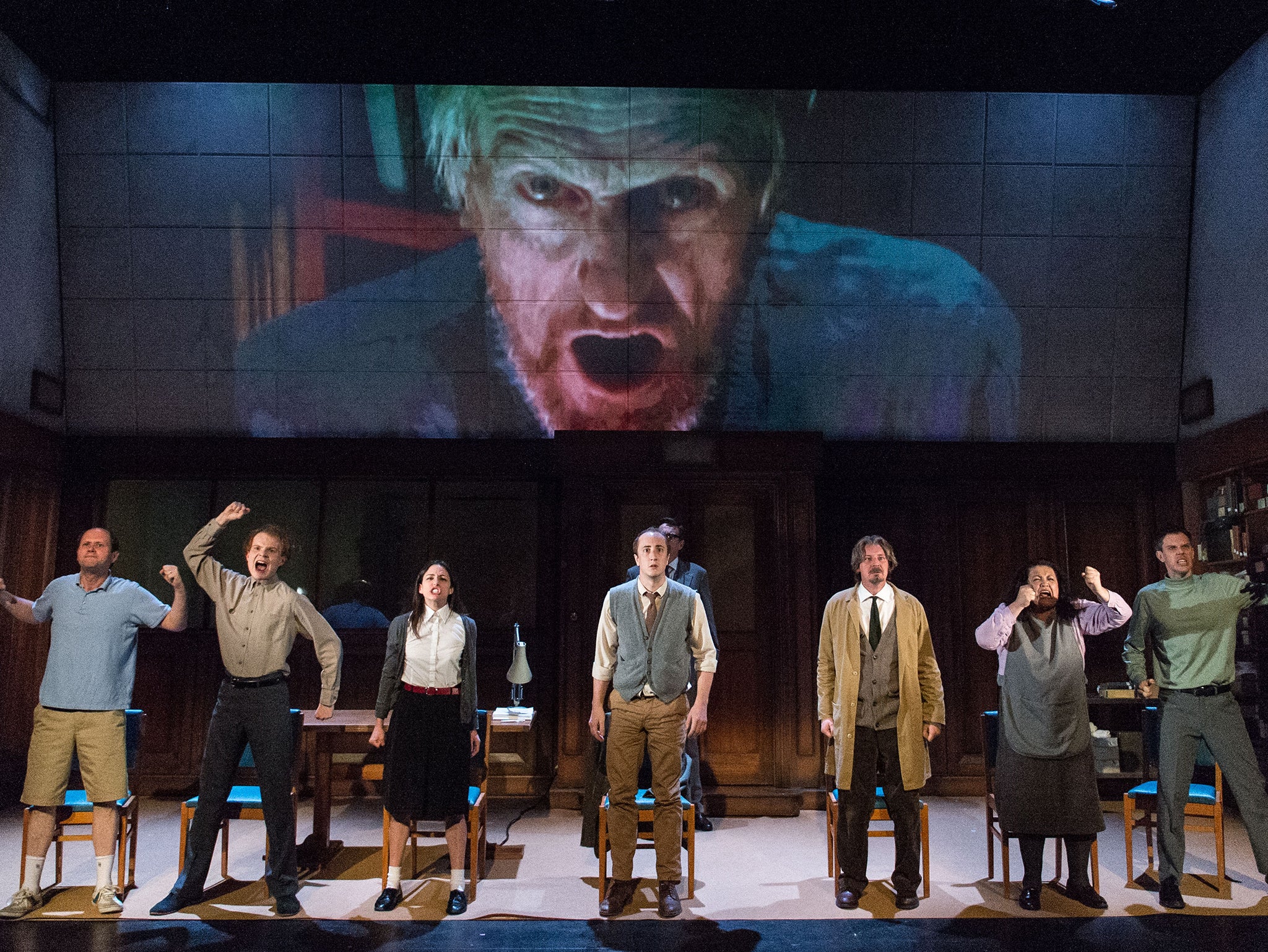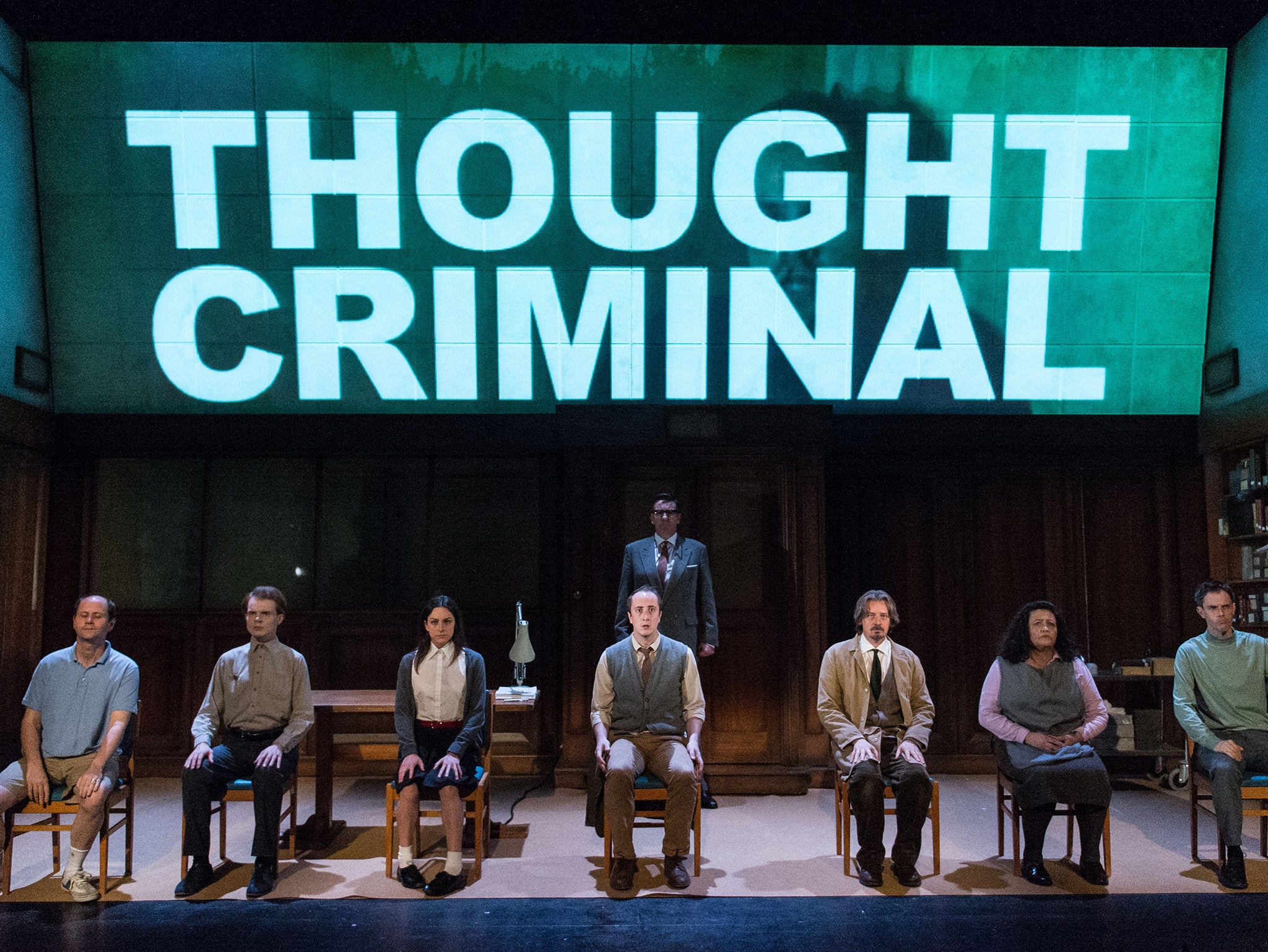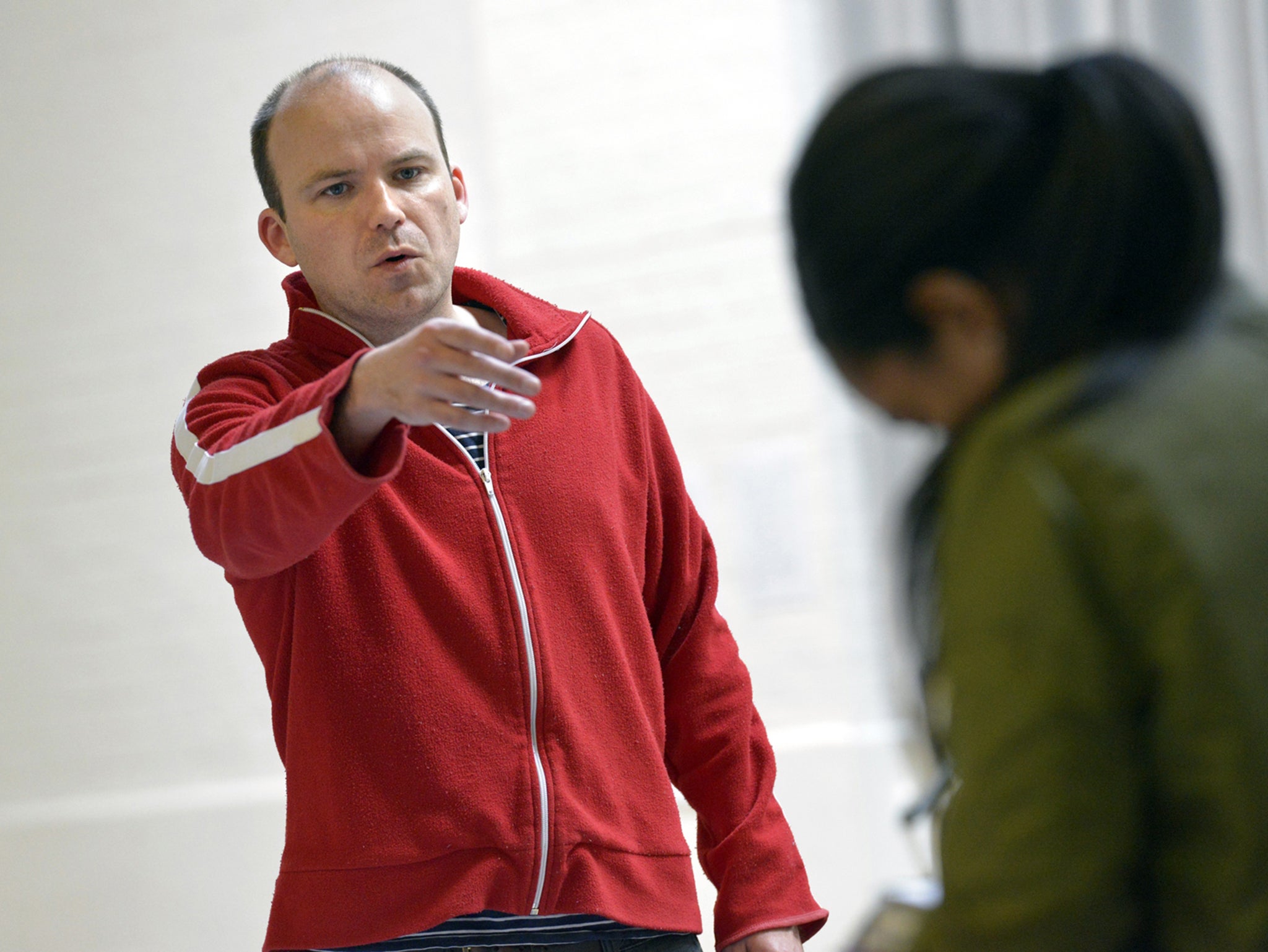From A Brave New World to 1984: Directors on why dystopian novels are invading the theatre
The future is here – but how to stage it?

"We live in a dystopia now.” So claims playwright Dawn King.
“We’re walking round with these tiny computers in our pockets: your government probably knows everything about you; your phone company definitely knows everything about you – even your calorie intake; you spread all this information everywhere you go, and yet at the same time there are boatloads of people dying to get into a country like ours .... We live in the future and the future’s kind of failed us.”
She’s been thinking a lot about dystopias lately, having been commissioned to adapt Aldous Huxley’s 1931 novel Brave New World for the stage; it opens at the Royal & Derngate in Northampton later this year. But King is not the only one who has been looking to old novels for freshly horrific visions: this month sees the opening of a new adaptation of Franz Kafka’s 1914 novel The Trial by Nick Gill at the Young Vic, and the return of Headlong’s hugely successful, incisive version of George Orwell’s 1984 – adapted and directed by Duncan Macmillan and Robert Icke – to the West End.
None has exactly been struggling to make these works feel relevant. All three share a preoccupation with oppressive regimes wielding power over individuals, and seem to have gained in pertinence in a 21st century obsessed by screens, monitored by governments and corporations, crippled by faceless bureaucratic procedures, told by a million tiny messages what to think, what to want, what to buy ….

It was the element of consumerist control which made Huxley’s novel seem particularly of-the-moment to King, 35. The satire – set more than 500 years from now – has a caste system rigorously imposed through genetic engineering and mind-control, but everyone is pacified by blissful drugs, promiscuous sex, and multi-sensory movie-watching.
“I think Brave New World is one of the only dystopias where people are oppressed by happiness and pleasure,” she points out. “Everyone is a consumer, and that’s their function. Everyone is constantly distracted from having any deep thoughts at all, which feels very relevant.” To the UK at least – she acknowledges that the other kind of dystopia, run by “active oppression and threat of death”, also exists in our modern world, if not on this exact landmass.
For many, 1984 and the state-arranged tortures of Room 101 are the ultimate fictional expression of totalitarian control; the novel has become a touchstone for discussing state surveillance. “Things happen in this play that feel really extreme – but anything in the play you could find happening somewhere in the world right now,” acknowledges Macmillan, 34. “Whether that’s about Orwell’s power of prediction or just about his detailing what he could already see in front of him, certain things [in 1984] will probably always be true.”

That said, Macmillan and Icke’s version feels radical – thanks, ironically, to a scrupulously faithful reading. Unlike previous versions, theirs grapples with Orwell’s oft-neglected appendix, written “some time after 2050”. This appendix suggests The Party is no more, but troublingly also contradicts some of the primary narrative about Winston and Julia, lovers crushed under that totalitarian system.
“One of the things the book is about is that you can’t trust the written word,” points out Macmillan. “Winston’s job is to re-write newspapers. And then you get to the end and realise this [text] has passed through an editor – someone else has written the appendix – it flips everything you’ve just read on its head. Our challenge was how do you find a theatrical equivalent of what that does with prose?”
Inspired by the appendix, their 1984 uses the framing device of a reading group in the future discussing the book. The multiple time schemes act as a form of doublethink: past and present overlapping onstage, but also highlighting the unreliability of memory and narrative. And they make the story less black-and-white: “Orwell keeps lots of possibilities alive: whether someone is a ‘goodie’ or a ‘baddie’, what’s happening to Winston and how true it is. You could do a version where Julia is absolutely Thought Police, or where she’s absolutely innocent – but actually, that would be an imposition on the book,” says Macmillan.

He claims 1984 is less about “Big Brother” surveillance technology – even if that has obvious contemporary resonance – than it is about mind control. “That, for me, was far more chilling than it being a moralising tome about how much personal data we put online. How can you trust your own memory, how can you know you’re not being influenced by external forces?”
Gill’s The Trial, starring Rory Kinnear, is also as much a tale of the individual as collective consciousness. Kafka’s celebrated novel tells the story of Josef K who finds himself arrested and embroiled in a ceaseless bureaucratic trial – for what crime, he never discovers. It has often been seen in terms of authority oppressing the helpless individual, but Gill suggests, making the play “into something about state control isn’t particularly in the book”.
Gill and director Richard Jones’s research had led them to James Hawes’ book, Excavating Kafka, which explodes the myth of the Czech writer as a tortured, overlooked, downtrodden artist, pointing out that he was successful in his life, with a well-paid – if bureaucratic – job as a civil servant, and achieved literary recognition.

It made them re-examine The Trial, finding this fragmentary text open to interpretation, rather than just being a nightmare of a labyrinthine judicial system. “It’s more about a sense of alienation from the modern world than about the modern world controlling you,” the 35-year-old explains.
Intriguingly, they’re updating the action, but to the 1980s rather than the present. This allows Gill and Jones to play up the story’s contemporary resonance, while avoiding any jarring notes. Crucially, they don’t have to introduce the internet; after all, to have Josef K Googling legal advice would be dramatically inert.
All three of these stories come with baggage. They’re novels that we all know, or at least pretend to know: 1984 came top of a recent poll about novels that people lie about having read. Interestingly, all four adaptors had first encountered their chosen works as teenagers – and these novels do align with adolescence, being imbued with a sense of existential angst and unjust persecution. Yet they clearly transcend that too: all these (admittedly still young) writers commented on the extent to which the books differed from their teenage memories of them, and how much deeper they run than the standard public conception allows for.
And, while all speak of feeling a responsibility to such classic works, they’re clearly not pussy-footing around. Gill is bullish about excising much of Kafka’s sexism; women in The Trial are often little more than sites for male desire and conquest. King, too, speaks with cheery disregard about omitting some of Huxley’s dated, laboured jokes or scientific predictions already rendered obsolete.
And if 1984’s time-bending, appendix-plundering story isn’t quite the love-and-torture linear tale that audiences might be expecting, Macmillan insists it was by doing a doublethink that they could be most true to the novel: “Any formal innovation is a way of transposing the formal innovations of Orwell to the stage … we didn’t want to take liberties because the source material is so good.” Nonetheless, these three productions all seem set to liberate classic texts of oppression by placing them on stage.
‘1984’, 12 June to 5 Sept, Playhouse Theatre; ‘The Trial’, Young Vic, 19 June to 22 Aug; ‘Brave New World’, Royal & Derngate, 4-26 Sept, then on tour
Join our commenting forum
Join thought-provoking conversations, follow other Independent readers and see their replies
Comments